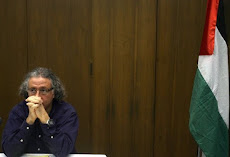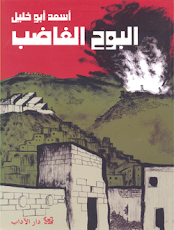""The international criminal court has persistently avoided opening an investigation into alleged war crimes in Gaza as a result of US and other western pressure, former court officials and lawyers claim.
...Some international lawyers argue that by trying to duck an investigation, the ICC is not living up to the ideals expressed in the Rome statute that "the most serious crimes of concern to the international community as a whole must not go unpunished".
John Dugard, a professor of international law at the University of Leiden, in the Netherlands, and a longstanding critic of Israel's human rights record, said: "I think the prosecutor could easily exercise jurisdiction. Law is a choice. There are competing legal arguments, but she should look at the preamble to the ICC statute which says the purpose of the court is to prevent impunity."
...There is strong US and Israeli pressure on the Palestinian leader, Mahmoud Abbas, not to pursue an ICC investigation.
Western pressure on the ICC to stay away from the issue has caused deep rifts within the prosecutor's office....
Luis Moreno Ocampo, who was prosecutor at the time of the Palestinian 2009 declaration, backed Bensouda, saying in an email to the Guardian: "If Palestine wants to accept jurisdiction, it has to submit a new declaration."
But another former official from the ICC prosecutor's office who dealt with the Palestinian declaration strongly disagreed. "They are trying to hiding behind legal jargon to disguise what is a political decision, to rule out competence and not get involved," the official said....
Moreno Ocampo took three years to make a decision on the status of the 2009 Palestinian request for an investigation, during which time he was lobbied by the US and Israel to keep away. According to a book on the ICC published this year, American officials warned the prosecutor that the future of the court was in the balance.
According to the book, Rough Justice: the International Criminal Court in a World of Power Politics, by David Bosco, the Americans suggested that a Palestine investigation "might be too much political weight for the institution to bear. They made clear that proceeding with the case would be a major blow to the institution."
Although the US does not provide funding for the ICC, "Washington's enormous diplomatic, economic and military power can be a huge boon for the court when it periodically deployed in support of the court's work," writes Bosco, an assistant professor of international politics at American University.
In his book, Bosco reports that Israeli officials held several unpublicised meetings with Moreno Ocampo in The Hague, including a dinner at the Israeli ambassador's residence, to lobby against an investigation.
A former ICC official who was involved in the Palestinian dossier said: "It was clear from the beginning that Moreno Ocampo did not want to get involved. He said that the Palestinians were not really willing to launch the investigation, but it was clear they were serious. They sent a delegation with two ministers and supporting lawyers in August 2010 who stayed for two days to discuss their request. But Moreno Ocampo was aware that any involvement would spoil his efforts to get closer to the US."
"There is enormous pressure not to proceed with an investigation. This pressure has been exerted on Fatah and Hamas, but also on the office of the prosecutor," [the French lawyer representing the Palestinians, Gilles]
Devers said. "In both cases, it takes the form of threats to the financial subsidies, to Palestine and to the international criminal court."
Among the biggest contributors to the ICC budget are the UK and France, which have both sought to persuade the Palestinians to forego a war crimes investigation."" (thanks Regan)
...Some international lawyers argue that by trying to duck an investigation, the ICC is not living up to the ideals expressed in the Rome statute that "the most serious crimes of concern to the international community as a whole must not go unpunished".
John Dugard, a professor of international law at the University of Leiden, in the Netherlands, and a longstanding critic of Israel's human rights record, said: "I think the prosecutor could easily exercise jurisdiction. Law is a choice. There are competing legal arguments, but she should look at the preamble to the ICC statute which says the purpose of the court is to prevent impunity."
...There is strong US and Israeli pressure on the Palestinian leader, Mahmoud Abbas, not to pursue an ICC investigation.
Western pressure on the ICC to stay away from the issue has caused deep rifts within the prosecutor's office....
Luis Moreno Ocampo, who was prosecutor at the time of the Palestinian 2009 declaration, backed Bensouda, saying in an email to the Guardian: "If Palestine wants to accept jurisdiction, it has to submit a new declaration."
But another former official from the ICC prosecutor's office who dealt with the Palestinian declaration strongly disagreed. "They are trying to hiding behind legal jargon to disguise what is a political decision, to rule out competence and not get involved," the official said....
Moreno Ocampo took three years to make a decision on the status of the 2009 Palestinian request for an investigation, during which time he was lobbied by the US and Israel to keep away. According to a book on the ICC published this year, American officials warned the prosecutor that the future of the court was in the balance.
According to the book, Rough Justice: the International Criminal Court in a World of Power Politics, by David Bosco, the Americans suggested that a Palestine investigation "might be too much political weight for the institution to bear. They made clear that proceeding with the case would be a major blow to the institution."
Although the US does not provide funding for the ICC, "Washington's enormous diplomatic, economic and military power can be a huge boon for the court when it periodically deployed in support of the court's work," writes Bosco, an assistant professor of international politics at American University.
In his book, Bosco reports that Israeli officials held several unpublicised meetings with Moreno Ocampo in The Hague, including a dinner at the Israeli ambassador's residence, to lobby against an investigation.
A former ICC official who was involved in the Palestinian dossier said: "It was clear from the beginning that Moreno Ocampo did not want to get involved. He said that the Palestinians were not really willing to launch the investigation, but it was clear they were serious. They sent a delegation with two ministers and supporting lawyers in August 2010 who stayed for two days to discuss their request. But Moreno Ocampo was aware that any involvement would spoil his efforts to get closer to the US."
"There is enormous pressure not to proceed with an investigation. This pressure has been exerted on Fatah and Hamas, but also on the office of the prosecutor," [the French lawyer representing the Palestinians, Gilles]
Devers said. "In both cases, it takes the form of threats to the financial subsidies, to Palestine and to the international criminal court."
Among the biggest contributors to the ICC budget are the UK and France, which have both sought to persuade the Palestinians to forego a war crimes investigation."" (thanks Regan)








